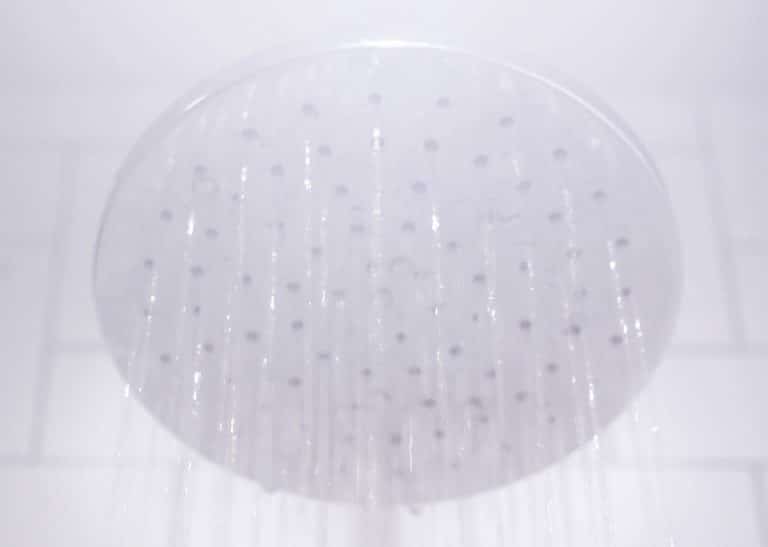How often should you shower?

In a new book titled Clean, Dr James Hamblin, a preventative medicine doctor, Yale School of Public Health lecturer and staff writer for The Atlantic, calls into question our society’s obsession with skincare regimens and argues that our habit of showering daily may actually be to our detriment, even during a global pandemic. Hamblin himself has not taken a proper shower in over five years, and reports that he’s doing just fine and smells, well… like a “human.”
I have to admit that my initial reaction after reading about Hamblin’s experiment was pure horror. As an avid-shower taker, the thought of forgoing my daily (sometimes bi-daily…) ritual of lathering up under a steamy current seemed mind-boggling. But the more acquainted I got with Hamblin’s showerless universe, the more I warmed up to his message. Besides, Hamblin is explicit about the fact that he isn’t encouraging his readers to go “cold turkey” and give up showers altogether; rather, he wants to acquaint us with previously unknown aspects of dermatology, and, most importantly, get us to question the necessity and reassess the consequences behind our skincare regimens, which he ascribes to centuries of social-conditioning and decades of brilliant marketing ploys.
Hamblin began his experiment a few years ago out of sheer curiosity about what would happen if he cut back on showers after he comprehended the environmental and potential health consequences of a 20-minute daily shower—which adds up to roughly two years of a person’s life on average (gasp).
At the core of Hamblin’s research is a previously unknown ecosystem, which gradually attracts the attention of scientists, referred to as ‘skin microbiome’. This ecosystem is composed of trillions of microbes (bacteria) that live on our skin and feed off of oily secretions and sebaceous glands located at the base of our hair follicles. In a 2016 article for The Atlantic, Hamblin states that our regular appliance of detergents (soaps, skin cleansers, etc.) to our skin obliterates the balance between skin oils and the bacteria that live on our skin.
“We’re really just starting to understand the depths of the importance of what those microbes are doing and how to keep that microbiome healthy. But it does seem clear that the answer is not to try to simply clear cut the forest as much as possible,” Hamblin said in an interview for As It Happens, adding that a potential solution would be to allow the microbiome to equilibrate.
So how did we end up tethered to innumerable skincare and hygiene products that we regard as absolute necessities? To a great extent, Hamblin says, this is a result of persistent ads inculcating in us the idea that we must drain our skin from oil and then replenish it with moisturisers. “It is a brilliant story of marketing,” Hamblin told As It Happens host Carol Off. “It’s basically a process of segmenting and growth by the big corporations that have sold us these things and found ways to make these products slightly differentiated so that they are maybe a little different colour, a little different scent, a little different concentration, and making whole new products out of them.”
In Clean, Hamblin delves deeper into the roots of our obsession with hygiene and discovers that in addition to cunning marketing strategies, this phenomenon is predicated on historically scientific interests in disease prevention that devolved into classist and racist views of cleanliness. “Throughout the history of the idea of cleanliness, it has been used maliciously to justify racism and xenophobia, and we’ve called other groups unclean since before we had germ theory as a way of just differentiating ourselves and justifying plunder,” said Hamblin.
According to some estimates, the booming skincare industry is predicted to be worth nearly $200 billion by 2025. But as skincare products proliferate in homes across the world and skincare regimens morph into somewhat of a religion, we must pause for a moment and ask ourselves, are they truly worth our investment? According to Hamblin—not quite. “[T]here are plenty of people out there who kind of get into these cycles of having flares of acne or eczema and trying to, you know, use more and more products and clean more and more aggressively. And there’s a big segment of that population who finds that, actually, things get better when you taper off,” he says.
Then there are the environmental consequences of our shower-filled lives and elaborate skincare routines—the excessive water usage, plastic waste, and the too-often-ignored but rapidly growing pollution of oceans and bodies of water caused by our everyday detergents.
Naturally, anyone contemplating Hamblin’s showerless lifestyle would be instantly worried about the issue of smell, something he does not discount in his research. “At first, I was an oily, smelly beast,” Hamblin confesses. But once the equilibrium of his microbiome has been restored, the rank subsided: “I’ve asked friends to smell me, and they insist that it’s all good,” he writes.
When asked about his thoughts on hygiene during the COVID-19 pandemic, Hamblin iterated that while he strongly advocates for frequent hand washing and using precautions such as wearing a face covering and avoiding touching our faces or rubbing our eyes, he sticks by his assertion that showering less could make us healthier in the long run. In fact, he sees the pandemic as the ultimate time to experiment—“a lot of people are working from home, working partly remotely, spending a lot more time at home as it is, and being more relaxed about…. self-care practices that weren’t really necessary in the first place.”
But Hamblin doesn’t recommend being hasty and says people should take it one shower at a time. Most of all, he would like us to start questioning our beliefs and perceptions around hygiene and think more critically about the need for daily showers and “the endless marketing” of skin and hair products. Why not start by skipping tomorrow morning’s shower?




